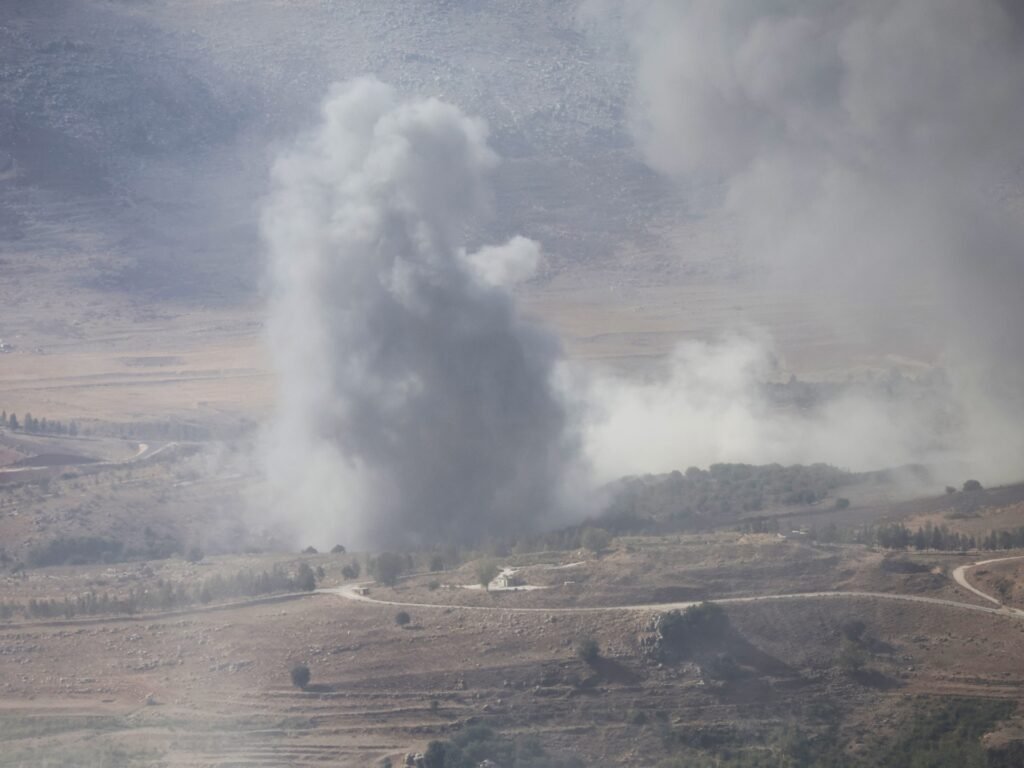Israel has repeatedly bombed Lebanon, violating a November 2024 ceasefire agreement to end conflict with Hezbollah.
President Joseph Aoun has called for an end to near-daily deadly Israeli strikes on Lebanon during a meeting in Beirut with United States envoy Morgan Ortagus, as Israel has intensified its attacks on its northern neighbour in recent days.
Israel has repeatedly bombarded Lebanon, flagrantly violating a November 2024 ceasefire that sought to end over a year of hostilities that escalated into months of full-blown war, with Lebanese armed group Hezbollah. In October alone, Israeli strikes have killed more than 20 people in Lebanon, according to the country’s Ministry of Public Health.
Recommended Stories
list of 3 items
- list 1 of 3Despite ceasefires, Israel continues attacks around the region
- list 2 of 3Israeli strikes kill three in Lebanon before army targets UN patrol
- list 3 of 3UN slams Israel after attack on peacekeepers in Lebanon
end of list
A statement released by the presidency on Tuesday said Aoun had insisted to Ortagus on “the need to activate the work of the Cessation of Hostilities Monitoring Committee … particularly with regard to halting the ongoing Israeli violations”.
A five-member committee, which includes the United States and France, is in charge of overseeing the implementation of the truce. Ortagus is expected to attend the committee’s meeting this week.
Aoun also asserted “the need to enable southern citizens to return to their homes and repair damaged ones, especially with winter approaching”.
Israeli strikes in recent weeks have targeted excavators and bulldozers. Lebanese officials believe these strikes aim to prevent any reconstruction work in the war-ravaged south. Israel says it is targeting Hezbollah, without providing evidence.
The United Nations human rights office said on Tuesday that it had verified the killing of 111 civilians by Israeli forces since the ceasefire in Lebanon.
As part of last year’s ceasefire deal, Israeli troops were to withdraw from southern Lebanon and Hezbollah was to pull back north of the Litani River and dismantle any military infrastructure in the south.
According to the agreement, only the Lebanese army and UN peacekeepers are to be deployed in the south of the country.
The United Nations and France condemned an Israeli attack that hit UN peacekeeping troops in southern Lebanon on Sunday.
UN spokesperson Stephane Dujarric said on Monday that the previous day’s attack on UNIFIL troops, which he said involved an Israeli drone dropping a grenade in the vicinity of a patrol, as well as a tank opening fire on peacekeepers near the border town of Kfar Kila, was “very, very dangerous”.
Israel still occupies five positions in southern Lebanon and has been launching near-daily attacks in defiance of the ceasefire.
Under US pressure and fearing an escalation of Israeli strikes, the Lebanese government has moved to begin disarming Hezbollah, who have said they will not lay down arms as the country’s main resistance to Israeli attacks and occupation in the south.
Despite the terms of the truce, Israel has kept troops deployed in five border points it deems strategic.
Israel’s attacks around the Middle East haven’t ceased with the recent ceasefire agreement in Gaza.
Lebanon, Syria and the occupied West Bank have all witnessed Israeli strikes in the last week, giving credence to the idea that Israel is trying to keep its neighbours destabilised and weak.
